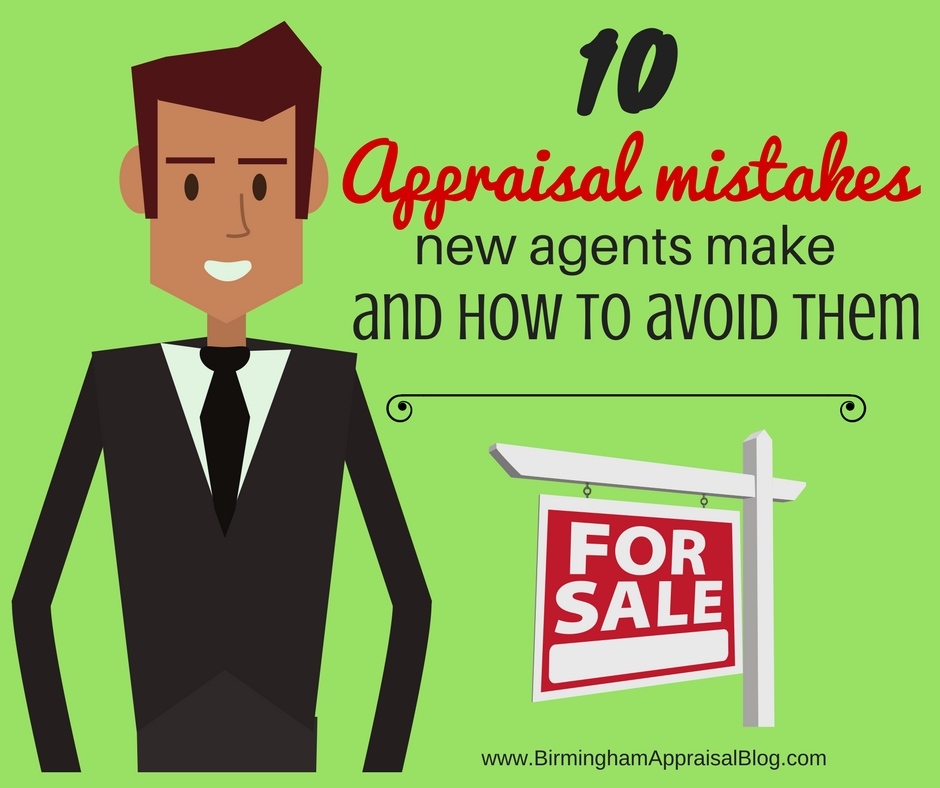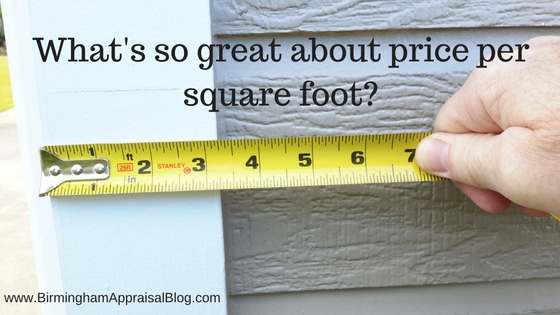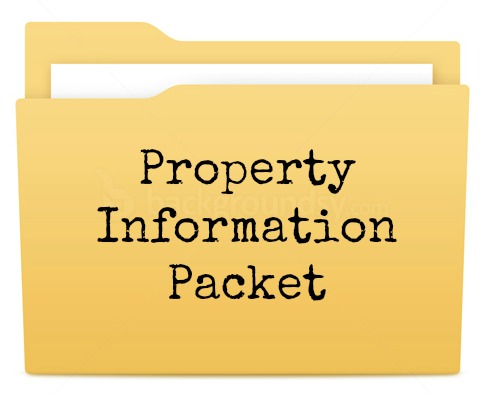 Common appraisal mistakes new agents make
Common appraisal mistakes new agents make
Are you a new real estate agent? Are you unsure about the appraisal process? If you answered yes to these questions then this post is for you. There are numerous potential appraisal mistakes new agents make but by becoming familiar with the items discussed here you can reduce the chances of having negative appraisal related issues with your listings. I’d like to hear from you with any other questions you may have so leave a comment below after reading.
10 Tips to avoid simple appraisal mistakes new agents make
1) Allowing the seller to tell you how much to list the home for- I know home sellers can be pushy about what they want to sell their home for but this is one area that you have to take a stand. You see, the market is what we should really be paying attention to when pricing a home. Buyers will want to recoup 100% of the money they have spent on home improvements but this is not always realistic.
There is a big difference between cost and value, and appraisers measure the value that buyers place on certain amenities. While a list price set by the seller will make them feel good, it may prevent them from selling the home in a reasonable amount of time. This can result in the home sitting on the market longer than necessary and also result in a lower sale price than you may have gotten if the price was set correctly from the beginning. A list price should be a reflection of the market, taking into consideration recent sales and current competitive listings.
2) Using only price per square foot to list a home- Price per square foot can be a good metric to use when pricing a home but it should not be the only consideration. Price per square foot is most accurate when the sales comparables are very similar to each other and also to the house you are pricing. It is less accurate when the subject and sales vary in square footage and amenities.
pricing a home but it should not be the only consideration. Price per square foot is most accurate when the sales comparables are very similar to each other and also to the house you are pricing. It is less accurate when the subject and sales vary in square footage and amenities.
Price per square foot takes into consideration the size of the house and the amenities it offers so it is dependent on these variables. A home that is larger will sell for less per square foot than a smaller home if everything else is the same. A home with a finished basement or other popular amenities will also sell for more per square foot.
The features that affect the price per square foot should be adjusted for to give the most accurate indication of value because if they are not then the price per square foot will not provide an accurate and reliable price for the home you are trying to price.
 3) Not having accurate square footage when listing a home- This is related to the price per square foot of the house. If you do not have an accurate estimate of the square footage or gross living area of the home then applying a price per square foot will not give you an accurate indication of value.
3) Not having accurate square footage when listing a home- This is related to the price per square foot of the house. If you do not have an accurate estimate of the square footage or gross living area of the home then applying a price per square foot will not give you an accurate indication of value.
Overestimating the square footage will result in overpricing the home and underestimating the area will cause you to underprice the home. There are various ways to obtain accurate square footage of the home so you should do whatever is necessary to make sure you have the most accurate information possible.
4) Not using real comparables- By this I mean that the sales you use as comparables should be realistic substitutes for the house you are pricing. Not all sales can be considered comparables for the home you are pricing.
Just because a home sold within the past month and is in the same neighborhood does not make it a comparable unless it would be a home that potential buyers would also consider if the subject home were not available for purchase. A comparable sale should be one that is similar in age, style, appeal, square footage, price range, and functional use.
A five bedroom three bath home with 4,500 square foot would not be a good comp for a three bedroom, two bath home that has 1,500 square feet. The buyers for each of these homes is very different as is the sales price that each would have.
5) Failing to use bracketing in your CMA- If you are doing a CMA to price the home, which is a good idea for all of your listings, then you should use bracketing to choose the sales. I’ve written about bracketing in past blog posts but it basically consists of using sales that are slightly inferior, similar, and superior to the property you are pricing.
In theory, you will make positive adjustments to the sales that are inferior to yours, negative adjustments to the sales that are superior, and little to no adjustments to the properties that are very similar. The adjustments will provide a very tight range of value that you can use to price the home. Bracketing will also help you choose the sales that are most similar like I mentioned in #4.
6) Not providing the appraiser with an information packet- If you have done all the necessary preparation to price the home correctly then you should also use this to your advantage by providing this information to the appraiser. An information packet can consist of a list of updates and renovations to the home that you may have considered in your pricing strategy. Replacement of roof covering and HVAC components are common repairs that homeowners make. Renovation or remodeling of kitchens and bathrooms are also typical projects that owners complete and that do affect the sale price. This information will help the appraiser to produce a more accurate appraisal that reflects the recent work that has been done.
to price the home correctly then you should also use this to your advantage by providing this information to the appraiser. An information packet can consist of a list of updates and renovations to the home that you may have considered in your pricing strategy. Replacement of roof covering and HVAC components are common repairs that homeowners make. Renovation or remodeling of kitchens and bathrooms are also typical projects that owners complete and that do affect the sale price. This information will help the appraiser to produce a more accurate appraisal that reflects the recent work that has been done.
With this being said, keep in mind that cost does not always equal value and you may not get a dollar for dollar return on the costs of making these improvements. An information packet can also include a list of features of a home that may not be readily apparent to the appraiser when looking at the home. In addition to information about the house, you can also include information about the neighborhood that makes it unique, especially if buyers are willing to pay more to live there.
7) Not looking at pending sales as comps- This is something I remind agents of when I speak at their sales meetings. They are surprised to find out that pending sales can be used in appraisals and can be used in your CMA’s. Anytime an agent can use the same methods and techniques to price a home that an appraiser uses I recommend it.
I believe that if an agent does this then the sales they use will probably be similar to the ones the appraiser uses which should help reduce the likelihood of there being big discrepancies when the appraisal is done. I am a big believer in looking at pending sales if the contract has been signed by the buyer and seller and everything has been done, such as financing and the appraisal, and they are just waiting to close. A pending sale that just occurred and has not been finalized would not be good.
8) Not providing the appraiser with other offers- In an appreciating market, it can be difficult for an appraiser to support some of the contracts that are written on homes that are above what other homes have recently sold for. This can be especially true when inventory levels are low.
One way for an agent to assist the appraiser is to provide them with any multiple offers they have. The offers can show the appraiser that there is increased demand for the home and that buyers are willing to pay top dollar for it. Multiple offers, combined with the fact that inventory levels are low, can help support a price at the upper end of the sales comparable range. Each case is different, and a value cannot be guaranteed, but providing this type of information can help the appraiser produce a better quality appraisal.
 9) Not communicating with the appraiser up front- New real estate agents should understand that it is okay to communicate with the appraiser as long as what is said is not intended to influence value. Agents are a good source of helpful information regarding the property that is being appraised.
9) Not communicating with the appraiser up front- New real estate agents should understand that it is okay to communicate with the appraiser as long as what is said is not intended to influence value. Agents are a good source of helpful information regarding the property that is being appraised.
As I noted previously, providing an information packet can help the appraiser know more about the house they are appraising such as updates and renovations. In addition, there could be information about recently sold homes in the neighborhood that would be helpful to the appraiser.
Agents should include information they have about bad sales as well as the good sales because this can help the appraiser determine whether they should use them in the report. As an agent, if you have personally shown any of the recent sales that have occurred in the neighborhood and have inside knowledge about their condition or terms of sale then you can pass this along to the appraiser. Having first-hand knowledge about the condition of a home or the terms of the sale helps appraisers make adjustments and assist them when reconciling the final opinion of value.
10) Failure to a get pre-listing appraisal- A pre-listing appraisal is not necessary for every situation but they can be extremely useful for those listings that the agent does not feel confident in pricing. Sometimes you may have a unique home that does not fit the mold of the neighborhood, or there may not be any recent sales in the subdivision that can help you come up with a list price.
In situations like these, a pre-listing appraisal by a knowledgeable local appraiser can help you price a home to the market so that it can sell as quickly as possible and for the highest amount that is supported by the market.
Just because you are a new agent does not mean that you cannot be knowledgeable about how the appraisal process works. By learning the 10 tips covered here you can guarantee yourself that you will not be caught off guard in pricing your listing or assisting the appraiser in the appraisal phase of your sale.
Question
Do you have any additional questions about appraisal mistakes new agents make? Leave a comment below and we’ll keep the conversation going.
If you liked this post subscribe by email (or RSS feed). Thanks for visiting.

While I’m not a realtor, my wife and I are about to list our home and are doing some research so as to have an educated guess about how much we should try to sell it for. Our realtor has been in business for a long time but I’m still going to run all of this information across her to have a fresh perspective. Thanks for putting in the time to write this!
Thanks, and I am glad it was helpful to you.
Thank you Tom. I think the failure to communicate is the most important thing. I often tell agents that appraisers are reporters that need to understand and tell the story of the property. Appraisers should be hungry for information. However, many appraisers don’t ask all the questions they need to or fail to start the conversation. A simple conversation could give an appraiser that extra nugget of information that helps them understand the marketability of the subject. Agents are a wealth of information about the subject and the neighborhood. Often agents know about the closest competition and why buyers selected another property over the subject or why they selected the subject over another property. This is all valuable information, in addition to the information about the subject contracts, hidden features, or particulars about how long ago updates/repairs were made and the costs.
Yes, Gary. As in most everything else communication is key. While some appraisers do not think that an agent can be helpful I am a firm believer in collecting as much information as possible and then sifting through it all to see what is relevant.
Amen x 10 Tom. Totally agree and have shared all these points as you have in Realtor lunch and learns. I truly believe we need to be a team with Realtors. They have information we do not like what the sellers are thinking when they select a particular home for sale. What is the pulse of buyers that they cart around to show houses every day which of course appraisers do not. It was such a disaster when Realtors were lead to believe that they could not talk with Appraisers. We need to work together and for you to help brand new Realtors/Agents from the very start to avoid the appraisal issues they may face is perfect! Makes good business sense for them and for their clients
Thanks, Mary. We do need to work together but we also need to know our roles and what is acceptable practice regarding communication. I find most agents I work with to be very open to learning how and why appraisers do what they do.
Nice job Tom. I think there is some real value here not only for new agents, but old timers too. It’s easy to get locked into a system of doing things a certain way, so it’s important at times to evaluate if the system can be improved. I find many real estate agents have a very hands-off approach when it comes to communicating with appraisers. Part of that is respectable because they don’t want to come across as pressuring for value. Yet there is room for honest communication about the property without coercion. Thus your point about sharing information with the appraiser and telling the story of the marketing of the property is very key.
Thanks, Ryan. I do think we can all reevaluate our methods and methodologies from time to time. There are a lot of things agents can do to help in the appraisal process without talking about value and I hope this is the message readers will take away.